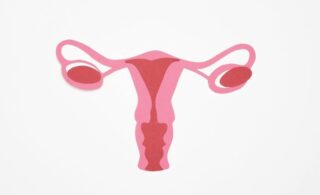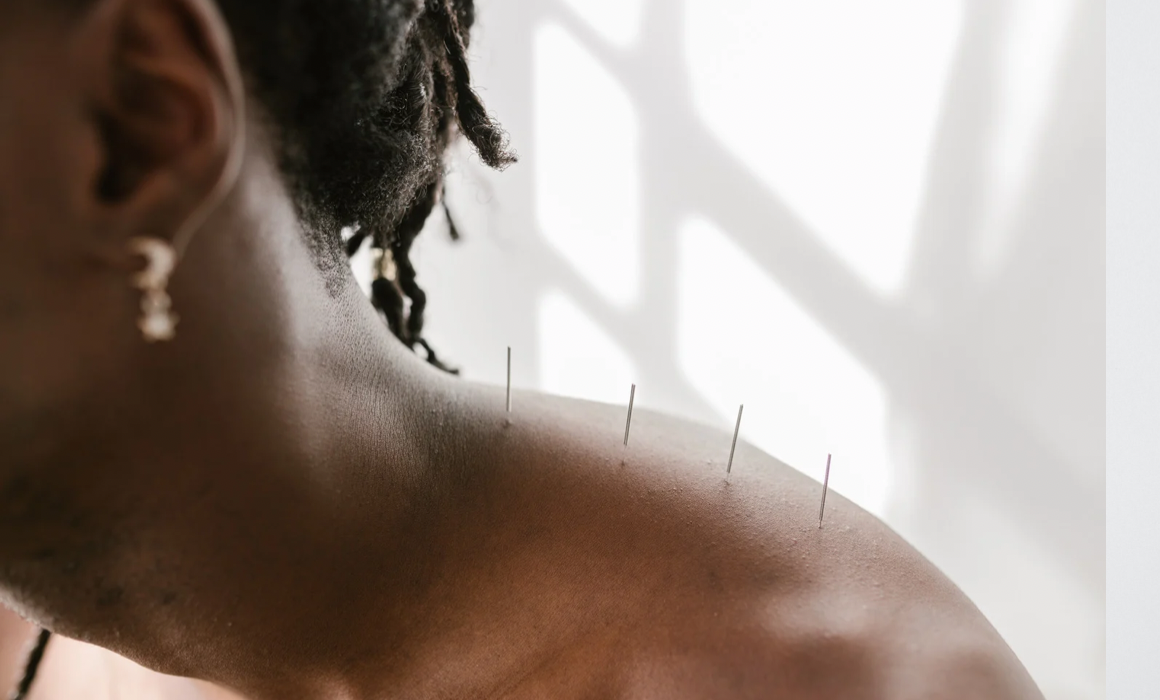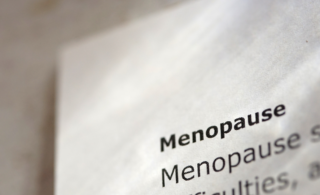
In this article an acupuncturist explains what acupuncture is and how it can help alleviate menopause symptoms.
By Jo Darling
Acupuncture is part of the world’s oldest and most widely used medical system – Chinese medicine. Its effects have been documented for 1000s of years, treating all manner of ailments. Future Dreams offers acupuncture for women going through breast cancer, at the Future Dreams House in London, which can also help alleviate menopause symptoms.
Acupuncture complements your medical treatment, providing support for you before, during and after it finishes. Acupuncture can help to alleviate many of the side effects of treatment – enhancing healing whilst promoting a sense of well-being. Acupuncture can support you whatever form of cancer you have, it should be noted that it is not a curative treatment.
What are the benefits of acupuncture?
Acupuncture is quite well known for pain relief, but the truth is, whilst it’s brilliant at relieving pain, it’s also fantastic for lots of health issues – including menopause symptoms. That’s because Acupuncturists are always looking for and treating the root of the issue, the overall imbalance if you like.
The root cause of a health problem will be caused by a number of combining factors including your DNA, your lifestyle and the illness and treatment you’re receiving.
When you go through treatment for breast cancer, whether it’s surgery, chemotherapy, radiotherapy or hormonal therapy there are a number of potential side effects, including cancer related early onset menopause.
An Acupuncturist will look at your whole health history together with the potential or experienced side effects from your treatment as well as using other tools of diagnosis such as pulse taking and checking your tongue.
All this information is put together like the parts of a jigsaw to create the full picture and inform your acupuncture treatment.

How can acupuncture help menopause symptoms triggered by breast cancer treatment?
After (and during) breast cancer treatment you may experience a wide range of menopausal symptoms. There’s no such thing as a ‘standard’ menopause frequency and intensity of issues will vary and so your treatment will need to be tailored to your individual needs.
The most common issues I treat in my clinic are hot flushes and night sweats, but there’s a whole load more than can be helped with just a few fine, painless needles. I regularly treat nausea, vomiting, lethargy, anxiety, insomnia, dry mouth, depression, headaches, constipation and pain.
Emotions are important too
You’ll notice from the list that acupuncture doesn’t just work on physical issues. The other wonderful thing about acupuncture is that it puts all your health issues, including emotional problems, together to create a diagnosis. There is no separation between the mind and the body, and increasingly we’re acknowledging this in the west too.
How often have you been really stressed mentally and found your shoulders up around your ears creating tension and making you feel worse? And how about if you’re really worrying about something, how that zaps your energy? These are issues that begin as mental stresses that manifest through the body bringing about physical illness.
Many of my patients comment on how relaxing acupuncture is and how soothed they feel at the end of at treatment and most report that their sleep improves too.
How does acupuncture work?
It takes three years to learn acupuncture, it’s a big subject, but in a nutshell it’s about energy. It’s about energy flowing round the body freely and all the organs interacting to support and maintain each other.
Each organ has its own functions (often different to how we perceive them in the west).
When going through breast cancer treatment the drugs often affect our kidneys and our liver. In Chinese medicine the kidneys are related to bones, head hair, moisturising, and cooling. This explains why menopause symptoms including bone issues such as osteoporosis, hair loss, dryness of skin and, for women, hot flushes occur.
Once an acupuncturist has formed a diagnosis, they then decide a treatment plan working with the relevant organ via different points which are found on specific places (along meridians) on the body. Mostly when treating breast cancer patients with menopausal issues the kidneys, liver and spleen will be supported.
Many acupuncturists use a minimal number of very fine needles and often you might feel a slight sensation as the needle is placed but it’s rarely uncomfortable and levels of hygiene are extremely high. No discomfort, no side effects, and a relatively high level of good results, what’s not to love!
Your acupuncturist may also advise you on some general health and lifestyle changes. These are often simple but effective suggestions such as paying attention to when and what you eat, keeping stress on the low down and finding joy even when you’re feeling low.
Unlocking the power of acupuncture and acupressure points for natural menopause relief at home
When you work with an Acupuncturist they form a diagnosis based on 10 main questions, often feeling your pulse and looking at your tongue. The questions alone can ensure a skilled practitioner knows how to treat the root cause of your problem. They can then advise which points to use and how to activate them – but not with needles.
Points can be used effectively via acupressure – applying pressure to specific points with the thumb, finger or even a special magnet. Points can also be activated by applying herbs or more likely essential oils. When you pair the right point with the right oil, results can be fantastic.
There are over 400 acupuncture points on body. Some, called empirical points, have been handed down through the generations across 1000s of years probably used by millions of people.
These empirical points are used as ‘stand-alone’ points for specific problems. So, for example for hot flushes there is a point on the back of the neck which is great for reducing heat in the body. There’s a point on the wrist that can help with palpitations. If you have headaches there’s a specific point on the foot – the list goes on!
So, if you’re looking for ways to take care of yourself naturally through menopause, using acupuncture / acupressure can make a difference. It’s always best to seek expert medical advice and getting a diagnosis before you start, after that the world is your oyster.

About the author
Jo Darling MBAcC Lic Acu is a Brighton-based Acupuncturist with a Bachelor of Science degree in Acupuncture from the University of Greenwich. Her training includes western medicine pathology, physiology, and anatomy. She is also a member of the British Acupuncture Council. Jo is an experienced Traditional Acupuncturist with specialist skills and training in cancer support. She has undertaken training in oncology acupuncture with the world-renowned Memorial Sloan Kettering Cancer Center, NY. She currently treats oncology patients at The Spire Montiefiore Hospital, Hove and at her private practise in Hove. Jo offers in person treatment and online consultations at which she can make a diagnosis and recommend points for self-care. Jo specialises in the treatment of breast cancer patients particularly those thrown into early menopause by chemotherapy. This work inspired Menopoised.
Further information
Future Dreams hold a range of support groups, classes, workshops and events to help you and your carers during your breast cancer diagnosis. These are held both online and in person at the London-based Future Dreams House. To see what’s on offer and to book your place, see here.
To return to the homepage of our Information Hub, click here where you can access more helpful information, practical advice, personal stories and more.
October 2022
The information and content provided in all guest articles is intended for information and educational purposes only and is not intended to substitute for professional medical advice. It is important that all personalised care decisions should be made by your medical team. Please contact your medical team for advice on anything covered in this article and/or in relation to your personal situation. Please note that unless otherwise stated, Future Dreams has no affiliation to the guest author of this article and he/she/they have not been paid to write this article. There may be alternative options/products/information available which we encourage you to research when making decisions about treatment and support. The content of this article was created by Jo Darling and we accept no responsibility for the accuracy or otherwise of the contents of this article.
Share

Support awareness research
Donate to those touched by BREAST cancer
Sylvie and Danielle began Future Dreams with just £100 in 2008. They believed nobody should face breast cancer alone. Their legacy lives on in Future Dreams House. We couldn’t continue to fund support services for those touched by breast cancer, raise awareness of breast cancer and promote early diagnosis and advance research into secondary breast cancer without your help. Please consider partnering with us or making a donation.

